Search
Search Results

Video
Author Talk: The Scythians with Barry Cunliffe
Brilliant horsemen and great fighters, the Scythians were nomadic horsemen who ranged wide across the grasslands of the Asian steppe from the Altai mountains in the east to the Great Hungarian Plain in the first millennium BC. Their steppe...
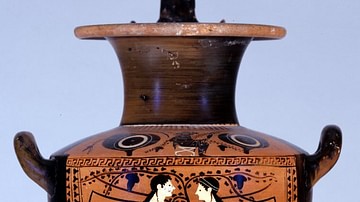
Definition
Ancient Greek Pottery
Greek pottery has four main types: Geometric, Corinthian, Athenian Black-figure, and Athenian red-figure pottery. Pottery vessels were made for everyday use such as the two-handled amphora for storage, the single-stem kylix cup for drinking...

Definition
Catherine the Great
Catherine II of Russia (Catherine the Great) was empress regent of Russia from 1762-1796. She was born in Prussia to Prince Christian August of Anhalt-Zerbst (1690-1747) and Princess Johanna Elisabeth of Holstein-Gottorp (1712-1760), and...
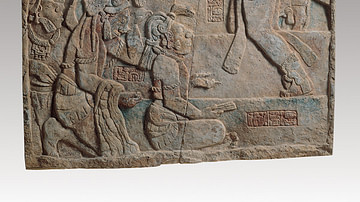
Definition
Maya Government
Ancient Maya government was formed on the basis that rulers were thought to have been god-like, which to some might suggest one unified state. However, the consensus amongst anthropologists supports that each major Maya city remained its...
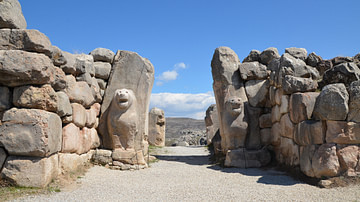
Definition
The Hittites
The Hittites occupied the ancient region of Anatolia (also known as Asia Minor, modern-day Turkey) prior to 1700 BCE, developed a culture apparently from the indigenous Hatti (and possibly the Hurrian) people, and expanded their territories...

Definition
Galileo Galilei
Galileo Galilei (1564-1642) was an Italian mathematician, physicist, astronomer, and natural philosopher. He created a superior telescope with which he made new observations of the night sky, notably that the surface of the Moon has mountains...
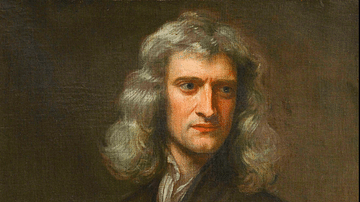
Definition
Isaac Newton
Isaac Newton (1642-1727) was an English mathematician and physicist widely regarded as the single most important figure in the Scientific Revolution for his three laws of motion and universal law of gravity. Newton's laws became a fundamental...

Definition
Ancient Greek Literature
Greek literature has influenced not only its Roman neighbors to the west but also countless generations across the European continent. Greek writers are responsible for the introduction of such genres as poetry, tragedy, comedy, and western...
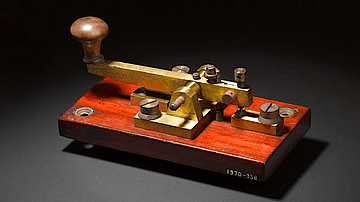
Definition
Electrical Telegraph
The electrical telegraph was invented in 1837 by William Fothergill Cook (1806-1879) and Charles Wheatstone (1802-1875) in England with parallel innovations being made by Samuel Morse (1791-1872) in the United States. The telegraph, once...

Definition
Hadrian
Hadrian (l. 78-138 CE) was emperor of Rome (r. 117-138 CE) and is recognized as the third of the Five Good Emperors (Nerva, Trajan, Hadrian, Antoninus Pius, and Marcus Aurelius) who ruled justly. His reign marked the height of the Roman Empire...